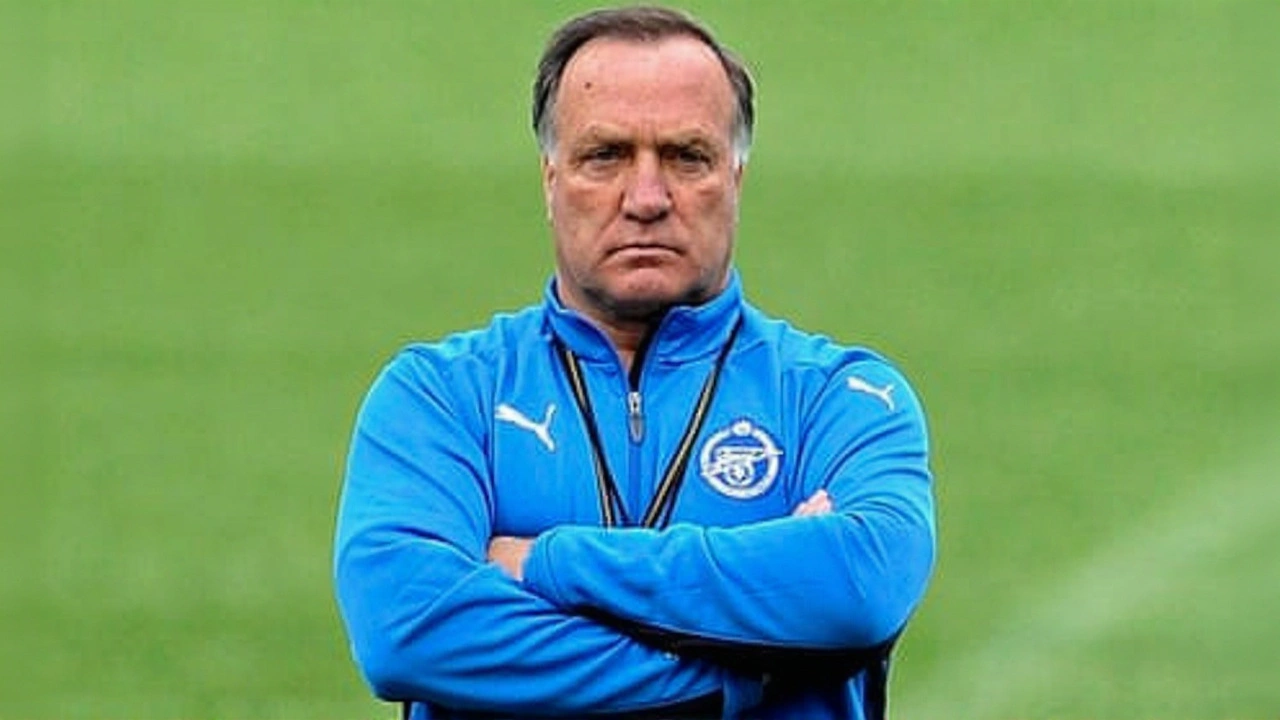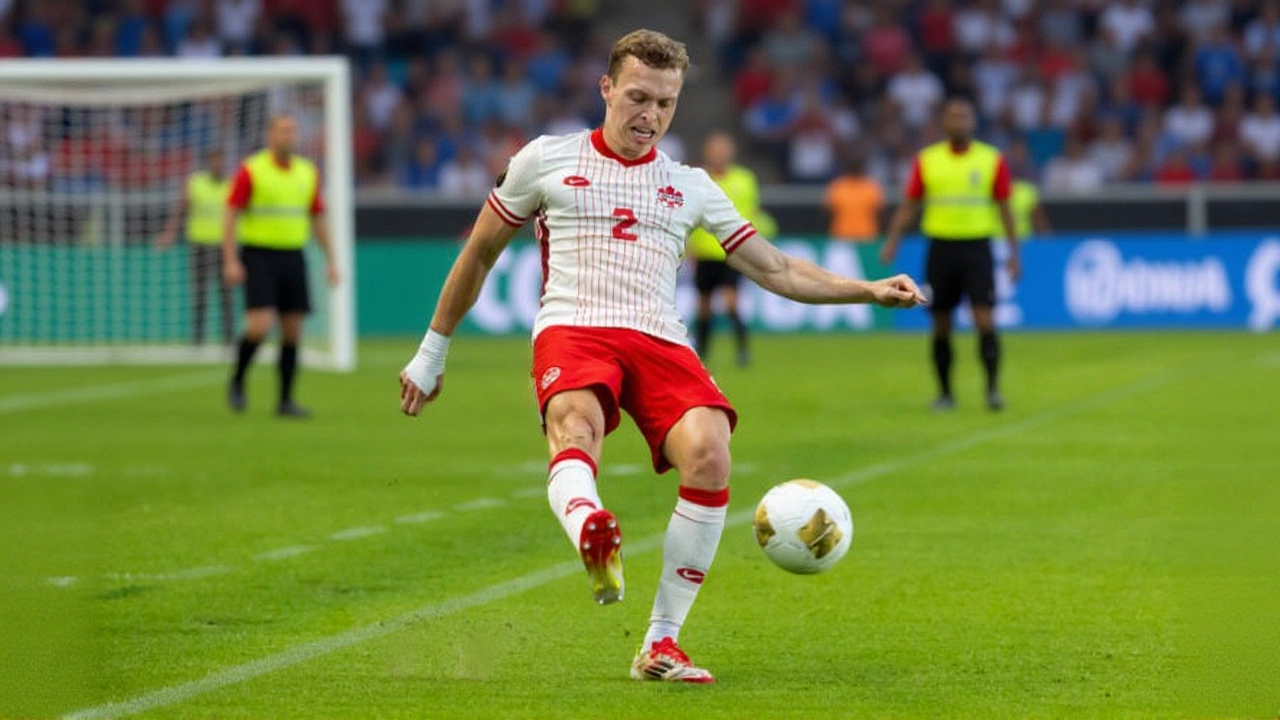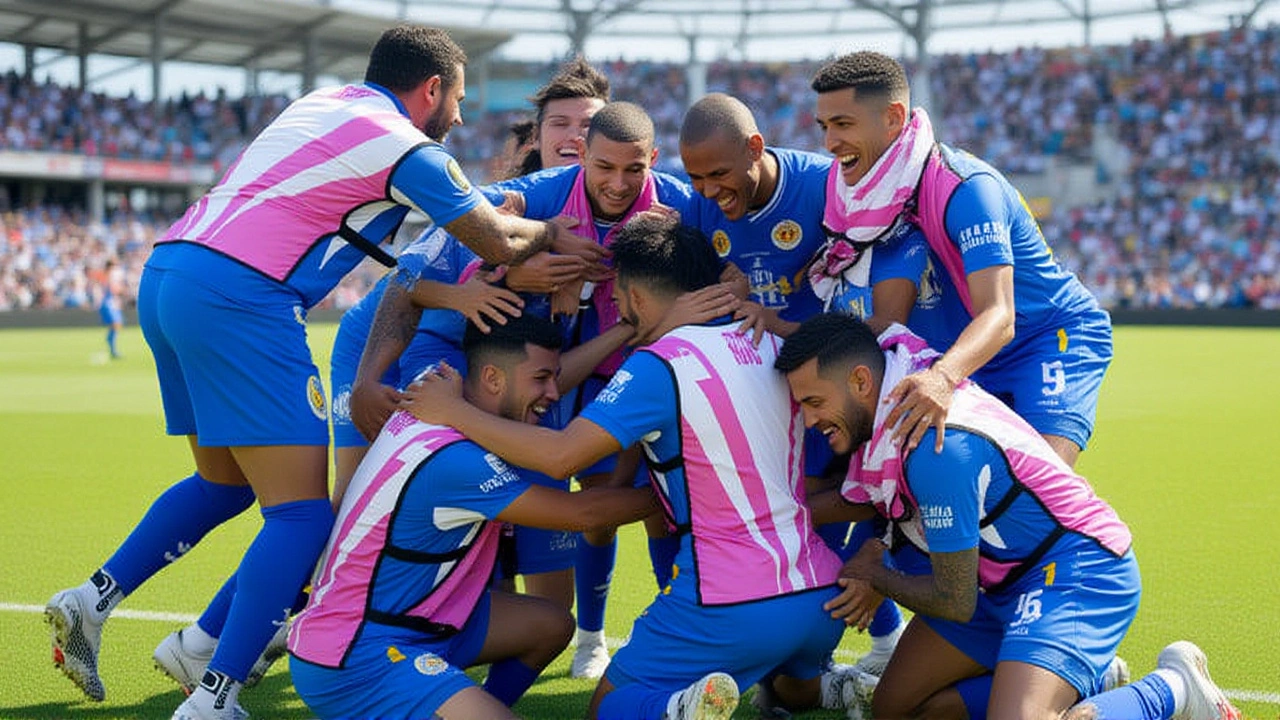When Derek Johnstone lifted the Scottish League Cup in 1964, he didn’t know he was starting a streak that would define his legacy — and now, six decades later, he’s chasing something no footballer has ever done. The Rangers F.C. legend, who made 504 appearances and scored 183 goals between 1960 and 1971, revealed in a November 5, 2025 interview with 5 Stars media platform that he’s pursuing a world record tied to his golden era at Ibrox Stadium. "Trophy!" he laughed, recalling the wild celebrations after wins. "There was a coal lorry waiting for us when we got back!" It wasn’t just fanfare — it was proof of how deeply those victories mattered.
The Three-Year Surge That Built a Legend
Johnstone’s peak came between 1962 and 1964, when Rangers F.C. claimed five major trophies in just three seasons: the Scottish League title in 1962–63 and 1963–64, the Scottish Cup in 1962–63, and the Scottish League Cup in both 1962–63 and 1963–64. That’s five domestic honors in 36 months — a feat matched by few clubs, let alone individual players. While modern fans often associate dominance with the 1990s or 2000s, Johnstone’s era was the foundation. He played alongside icons like Willie Henderson and John Greig, under manager Scot Symon, during a time when Rangers didn’t just win — they dominated the domestic scene with ruthless consistency."That year in the league we won nothing, we had a poor season!" Johnstone admitted in the same interview, underscoring how even the greats faced setbacks. In 1961–62, Rangers finished third — a rare stumble. But the bounce-back was brutal. The next season, they won everything. That resilience, he says, was the secret. "You didn’t celebrate the win because you were good. You celebrated because you refused to lose."
Why Ibrox Was a Different Kind of Battlefield
Ibrox Stadium in Glasgow’s Govan district wasn’t just a ground — it was a fortress. Built in 1899, it had witnessed the rise of British football’s first true powerhouse. By the early 1960s, it was packed with 80,000 fans every Saturday, the air thick with smoke from pipes and cigarettes, the chants echoing off the old concrete terraces. Johnstone remembers the smell of wet wool and coal dust after away trips — the same coal lorry that waited to unload on the team bus wasn’t just a novelty. It was tradition. "They’d bring it right up to the bus door," he recalled. "Someone’d hand you a lump of coal. You’d throw it at your mate. Everyone laughed. It was ours."Those celebrations weren’t just joy — they were rituals. In an era before social media, before corporate sponsorships dictated fan engagement, the bond between player and supporter was raw. The coal lorry wasn’t sponsored by a brewery. It was organized by the Rangers Supporters Club. That intimacy, Johnstone believes, is what made those trophies mean more than any modern medal.

Rangers’ Trophy Legacy: A Record-Breaking Machine
Rangers F.C. holds more domestic honors than any club in the world: 55 Scottish League titles (tied with Celtic), 34 Scottish Cups, and a record 28 Scottish League Cups. They were the first club globally to reach 50 league titles in 2003 — a milestone Johnstone watched from the stands, tears in his eyes. The club’s seven domestic trebles (winning all three major trophies in one season) remain unmatched in British football. But Johnstone’s three-year haul — five trophies — was among the most concentrated bursts of success in the club’s history.Compare it to modern eras: In 2002–03, Rangers won the league and League Cup but lost the Scottish Cup final. In 2008–09, they won the league and League Cup — again, no cup. Johnstone’s era was different. Back then, the Scottish Cup was a priority. Teams didn’t rotate squads. Every match mattered. And every win was a public event.
The Record He’s After — And Why It Matters
Johnstone hasn’t disclosed the exact nature of his world record attempt. But insiders suggest it’s tied to the most domestic trophies won by a single player over a three-season span in top-flight European football. No player has officially been credited with five major trophies in three consecutive years in a major league — not even Lionel Messi, Cristiano Ronaldo, or Ryan Giggs. Johnstone’s claim, if verified by Guinness World Records, would stand alone."I didn’t think about records then," he said. "I thought about the next game. The next crowd. The next coal lorry. But now? Now I want the world to know what we did. Not because we were the best. But because we never stopped trying."
His pursuit isn’t just personal. It’s historical. As Scottish football battles declining attendances, financial instability, and global competition, Johnstone’s story is a reminder of what the game once was — and what it could be again.

What Comes Next?
The 5 Stars media platform has submitted documentation to Guinness World Records, including match reports from 1962–64, signed team sheets, newspaper clippings, and eyewitness accounts from surviving teammates. A decision is expected by March 2026. Meanwhile, Johnstone is touring Scottish schools and community centers, speaking to young players about discipline, loyalty, and the value of winning — not for trophies, but for the people who stood behind you."I don’t need a medal," he said. "I’ve got the coal. And I’ve got the memories. But if they give me the record? I’ll take it. For them."
Frequently Asked Questions
What trophies did Derek Johnstone win with Rangers between 1962 and 1964?
Between 1962 and 1964, Derek Johnstone won five major trophies with Rangers F.C.: the Scottish League title in 1962–63 and 1963–64, the Scottish Cup in 1962–63, and the Scottish League Cup in both 1962–63 and 1963–64. This five-trophy haul in three seasons is central to his world record pursuit, unmatched by any other player in top European football history.
Why is the coal lorry celebration significant to Rangers fans?
The coal lorry was a grassroots tradition organized by Rangers supporters after major victories in the 1960s. Fans would load coal onto a lorry and drive it to the team bus as a symbolic, working-class tribute — a nod to Glasgow’s industrial roots. It wasn’t sponsored or staged; it was pure, raw fan culture. Johnstone’s mention of it highlights how deeply connected players and supporters were, long before modern marketing.
Has any other player won five major trophies in three years in Europe?
No verified player in top-flight European football has achieved five major domestic trophies in three consecutive seasons. Even during Barcelona’s 2008–11 peak or Bayern Munich’s 2012–15 dominance, no individual player accumulated that many domestic titles in such a short span. Johnstone’s potential record, if confirmed, would be unprecedented.
How does Rangers’ trophy count compare to other clubs worldwide?
Rangers F.C. holds the record for most Scottish League Cups (28), is tied with Celtic for most league titles (55), and has won the domestic treble seven times — the most in British football. Globally, only clubs like Real Madrid (14 European Cups) and Al Ahly (42 domestic titles) rival their longevity, but no club matches Rangers’ consistency in winning multiple domestic trophies annually over decades.
What’s the timeline for verifying Derek Johnstone’s world record?
The 5 Stars media platform submitted documentation to Guinness World Records on November 15, 2025, including official match reports, team sheets, newspaper archives, and sworn affidavits from surviving teammates. A decision is expected by March 2026. If approved, Johnstone will be officially recognized as the first player in history to win five major domestic trophies in three consecutive seasons.
Why is this record important for Scottish football today?
With attendances declining and global competition shrinking domestic relevance, Johnstone’s story rekindles pride in Scottish football’s golden eras. His record isn’t just about stats — it’s about identity. It reminds fans that Rangers and Celtic once dominated not just Scotland, but inspired a global football culture. His pursuit is a call to remember what the game meant before money dictated everything.
